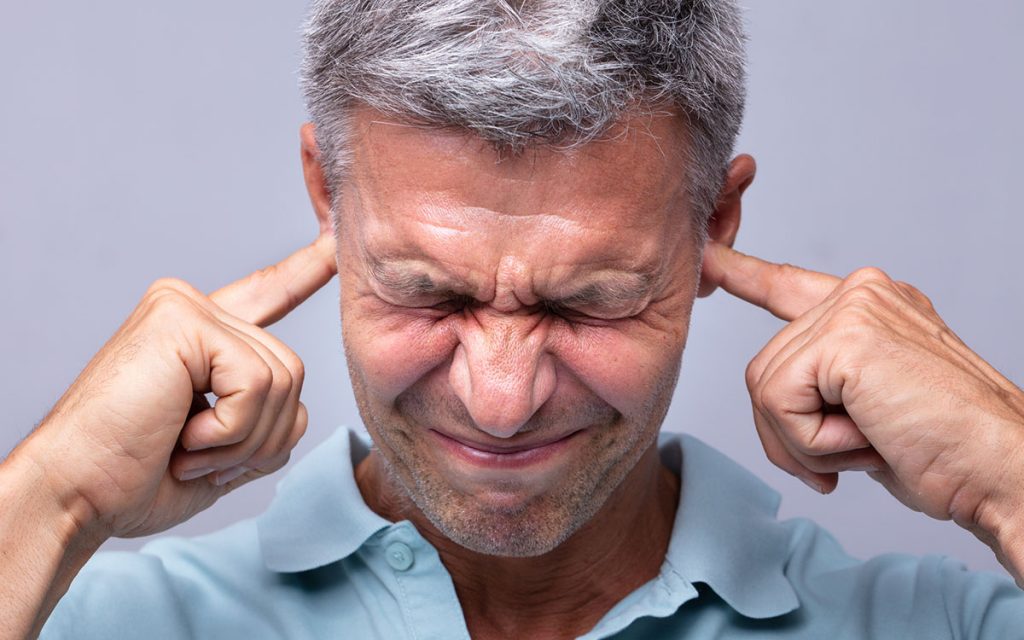The average adult experiences 2-3 colds per year, making this particular malady exceptionally common. But just because they’re frequency doesn’t mean that colds can’t make you miserable. Fevers, runny noses, sneezing, coughing–cold symptoms come in a myriad of varieties (you probably have your least favorite).
But one cold symptom that doesn’t get much attention has to do with your ears. As you become congested, your ears could grow blocked, and that can interfere with your hearing and your comfort. If your ears are blocked because of a cold, there are a few things you can try to help relieve your symptoms. This is, of course, assuming there are no signs of an ear infection. (If you have signs of infection like pain, pressure, a fever or fluid coming out of the ear, see a doctor as soon as possible.)
1. Blow your nose (But do it gently)
It’s not like your ears are producing all of the excess fluid that causes blockages. Instead, it’s your nose and sinuses that are creating everything (you can curse and admire their productivity at the same time). But once your nasal passages run out of room, all excess mucus and fluid starts to go down your eustachian tubes–and your ears end up blocked. The (partial) solution may be to blow your nose.
This gets fluid out of your sinuses and, well, makes room. The more vacancy you produce in your sinuses and your nose, the less fluid will overflow to your ears. But there’s no need to force the issue and violently blow your nose. Be gentle and let your body do its thing.
2. Use a humidifier
It’s not just excess fluid that can cause buildup and congestion: it’s inflammation, too. When your eustachian tubes become inflamed, there’s simply less room for any fluid to go. Dry air can cause a significant amount of irritation to your nasal passages–and with that irritation is often a source of inflammation. This can quickly lead to blocked ears (and the accompanying discomfort).
Keeping a humidifier going can keep your air from getting too dry (locally, anyway). This can help your nasal passages feel better and limit inflammation.
3. Drink plenty of water
A runny nose won’t often be your primary problem when it comes to clogged ears. It’s a stuffy nose you need to watch out for. Your ears become blocked when fluid (excess or otherwise) isn’t able to drain as it’s supposed to. Drinking plenty of water may help your ears feel better when you have a cold.
When you stay hydrated, your nasal mucus does too. Drinking lots of water can help you thin out that nasal mucus, which in turn becomes easier for your body to drain. And the better your sinuses drain, the less congested your ears will feel.
4. Take a nasal decongestant
Sometimes staying hydrated isn’t enough (a cold can be amazing that way). When your stuffiness is persistent, it might be useful to consider taking an over-the-counter nasal decongestant.
Such decongestants can help fluids drain–and, as a result, help keep your eustachian tubes and ears clear. However, most such decongestants come with cautions against taking them for more than three days in a row (if you feel compelled to do so, you should talk to your doctor).
You may also want to stay away from decongestants if your nose is already quite runny.
5. Use a nasal spray
Using a nasal spray or nasal irrigation method can sometimes help get your mucus drainage system moving again, alleviating pressure on your ears. The effectiveness of these sprays will depend on the nature of your cold and your own comfort level with the methods. Many nasal sprays are, again, designed as decongestants, so their primary purpose is to get fluids running back the way they’re supposed to.
Cold protection for your ears
Every cold (known medically as a rhinovirus) is going to be slightly different. So there’s a lot of “listening to your body” involved in the process of unblocking your ears. The approach you take will likely depend on what’s blocking your ears in the first place.
But it’s important to look at the system holistically. Your ears, sinuses, nose, and throat are all connected. A cold that’s particularly rough on your sinuses, for example, will likely have an impact on your ears, too. When in doubt, seek out professional medical advice.



